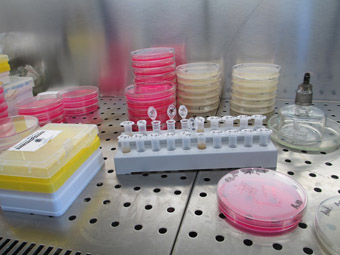Tumors originate from the alteration of cells that multiply and spread escaping the mechanisms that maintain the balance of the different tissues. There are numerous types of tumors that can affect virtually any organ and are generally classified as benign or malignant depending on its ability to invade surrounding tissues and more distant organs. The term neoplasms include solid organ tumors and those of blood cells such as lymphomas and leukemias. Some tumors are exclusive or more frequent in the male or female gender and differences in genders can also be observed in the response to therapies.
Despite the great successes obtained in the last decades with prevention, early diagnostics and therapy measures, malignant tumors continue to be among the leading causes of death and deterioration of life quality; and also due to longer average life spans, in many cases, cancer incidence increases with age. For some neoplasms, mortality has decreased markedly; for others, despite the great commitment of research, the need remains to find new, more effective and specific therapies.
Cancer therapy is essentially based on surgery, especially in localized forms, radiotherapy and drugs. By identifying molecular alterations (tumor genetics) or targets that are present exclusively, or prevalently, on cancer cells, drugs have been developed in recent years aimed at selectively targeting cancer cells. Prevention is fundamental, and by studying the epidemiology of tumors it is possible to identify environmental or lifestyle-related risk factors that can be corrected to reduce the risk of developing cancer.
The Istituto Superiore di Sanità (ISS, the National Institute of Health in Italy) carries out research in the field of oncology, hematology and genetic diseases, and with a translational orientation.



